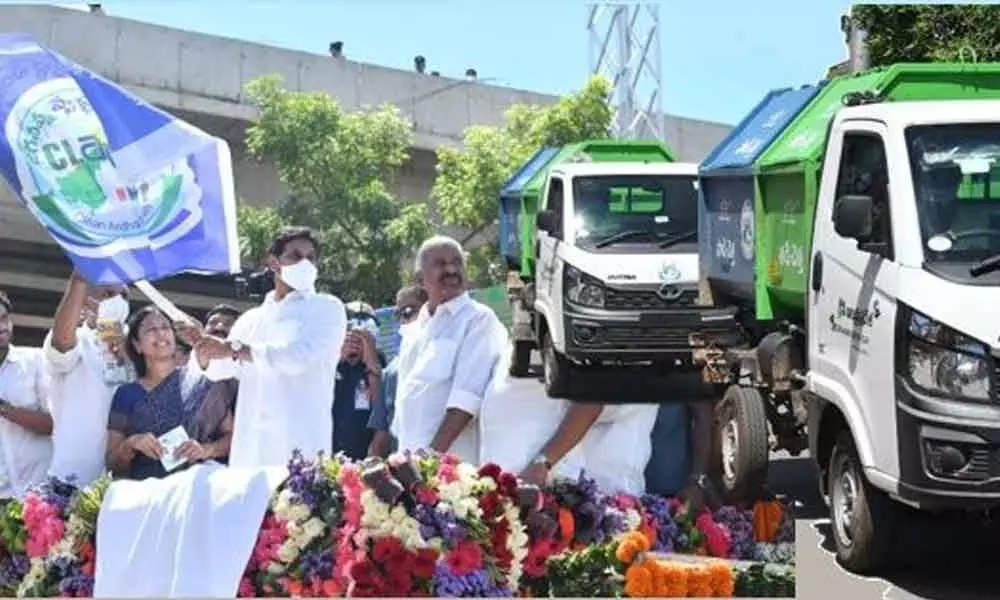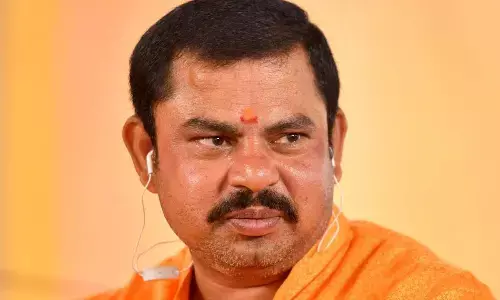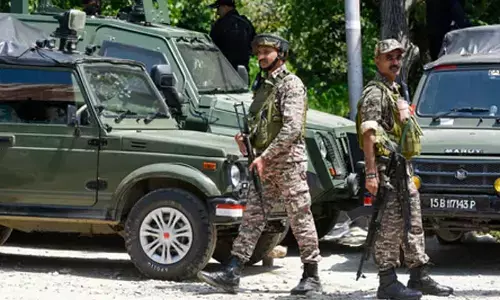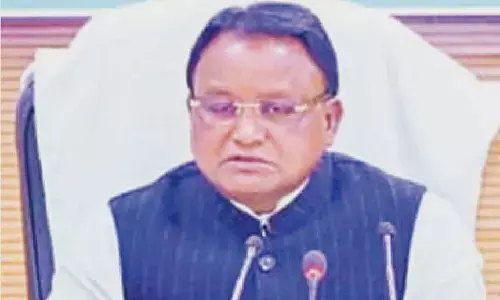CLAP for Swachh Andhra Pradesh

Chief Minister Y S Jagan Mohan Reddy launching the CLAP initiative by flagging off 2,600 garbage collection vehicles in Vijayawada
CM flags off 2,600 garbage collection vans
Amaravati: To mark Gandhi Jayanti, the Andhra Pradesh government on Saturday rolled out Clean Andhra Pradesh (CLAP) - its mega initiative to promote cleanliness and sanitation in the State. Chief minister Y S Jagan Mohan Reddy launched the CLAP initiative by flagging off 2,600 garbage collection vehicles.
The Clean Andhra Pradesh (CLAP) - Jagananna Swachha Sankalpam mission is an initiative to set a robust sanitation system in motion across urban and rural localities in the State.
From collection to treatment of waste, CLAP aims to achieve a total source segregation of garbage, mechanized door-to-door collection with community participation, onsite waste treatment, complete treatment of waste generated, and to encourage home composting. For primary segregation of waste at a domestic level, a 3-bin system (Green, Blue, and Red for each Household) is being deployed, the procurement and supply of 1.2 crore household bins at an estimated cost of Rs 72 crore to around 40 lakh households are underway, officials said.
For the door-to-door collection of waste, 3,097 diesel auto tippers are set to be deployed in grade 1 and above category Urban Local Bodies (ULB) as part of phase one of this initiative and 1,800 electric vehicles (auto-rickshaws) will be introduced in grade 2/3 category ULBs and Nagar Panchayats. Both the diesel auto tripper and electric vehicles will be equipped with wet, dry, and domestic hazardous waste partition bins with a hydraulic lift and a microphone for the announcement of IEC activities for public awareness.
For the transportation of garbage/ waste in grama panchayats, 14,000 tri-cycle rickshaws are being distributed, and 1,000 auto rickshaws are being distributed to villages with a population of 10,000 or above.
For the intermediate storage of segregated waste, 231 Garbage Transfer Stations estimated to cost Rs 220 crore will be set up in 124 ULBs, where primary waste collected from households is transferred, compacted, and then transported out to treatment plants. A green belt of 20 feet will be developed around every Garbage Transfer Station to improve the ambiance. Further, for the safe disposal of masks and sanitary napkins, 6,417 incinerators are to be distributed at all grama panchayats. For processing solid waste generated comprehensively, construction of 4,171 Integrated Solid Waste Management plants (ISWM) is underway, in addition to those that are already set up. These ISWM plants will be equipped with facilities to treat wet & dry waste through a bio-methanation plant/ compost plant and MRF centre, all at one location. For curbing the mosquito menace to control the spread of vector-borne diseases, 10,628 thermal fogging machines are being distributed.
In a bid to eliminate open defecation, 1,500 community toilets and public toilets are to be constructed at high footfall areas like bus stands, railway stations, government hospitals, ward secretariats in all the ULBs across the state. The government has allocated 10,731 high-pressure toilet cleaning devices to maintain the sanitary conditions of the community toilets.










